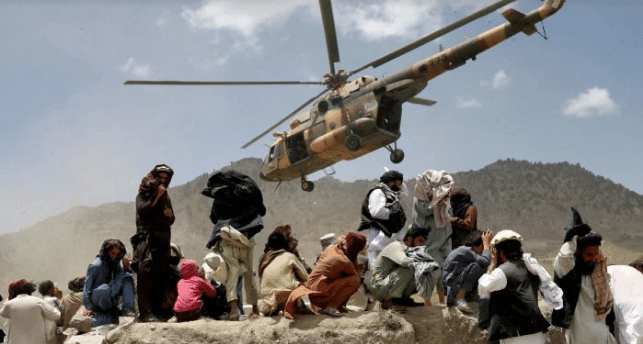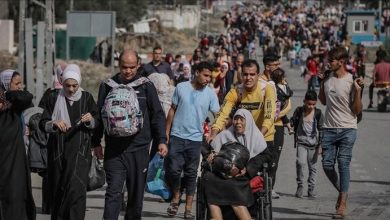Taliban interfering with aid, resisting cash plan: UN

UNITED NATIONS: Afghanistan’s ruling Taliban are resisting efforts by the United Nations to help get humanitarian funding into the country and are interfering in the delivery of aid, UN aid chief Martin Griffiths told the Security Council on Thursday.
Since the Taliban took over in August as US-led forces withdrew after two decades of war, international banks are wary of testing UN and US sanctions, leaving the United Nations and aid groups struggling to deliver enough cash to run operations.
“The formal banking system continues to block transfers due to excessive de-risking, impacting payment channels and causing breakdowns in supply chains,” Griffiths told the 15-member Security Council.
The United Nations has been trying to kickstart a system—described as a Humanitarian Exchange Facility (HEF)—to swap millions of aid dollars for Afghan currency in a plan to stem aid and economic crises and bypass Taliban leaders who are under sanctions.
“We have seen limited progress because of resistance by the de-facto authorities. This is an issue that is not going to fix itself,” said Griffiths, adding that until Afghanistan’s formal banking system could operate properly again, the United Nations needed to get the Humanitarian Exchange Facility up and running.
He said about half the aid groups recently surveyed by the United Nations reported difficulty transferring funds into Afghanistan, down from 87% in October, adding: “The direction of travel is positive, but the figure remains alarming.”
Griffiths said two-thirds of the aid groups cited a lack of available cash in Afghanistan as impeding their programs.
Griffiths said Taliban authorities are also increasingly interfering with the delivery of humanitarian aid, despite a pledge to UN officials in September that they would not.
“National and local authorities are increasingly seeking to play a role in the selection of beneficiaries and channeling assistance to people on their own priority lists, citing an almost universal level of need,” he said.
“We are also seeing more demands by the Taliban for data and information with regards to budget and staffing contracts,” he said, adding that aid groups “face continued difficulties as they try to hire Afghan women for certain functions.”
The Taliban could not be immediately reached for comment on Griffiths’ remarks.
Griffiths said the United Nations had only received one-third of the $4.4 billion it needed to meet humanitarian needs in Afghanistan in 2022. “We simply do not have enough funding,” he said.
The council met for its quarterly meeting in Afghanistan a day after an earthquake killed at least 1,000 people in a remote part of the country.
Afghan Taliban say rescue effort almost complete
Poor communications and a lack of proper roads are hampering relief efforts in a country already grappling with a humanitarian crisis that has deteriorated since the Taliban took over last August.
“The rescue operation has finished; no one is trapped under (the) rubble,” Mohammad Ismail Muawiyah, a spokesman for the top Taliban military commander in the hardest-hit Paktika province, told Reuters.
Mohammad Nassim Haqqani, a spokesperson for the disaster ministry, told Reuters rescue operations had finished in major districts but were continuing in some isolated areas.
The United Nations said on Thursday that the Taliban ministry of defense had indicated as early as Wednesday that 90 per cent of search and rescue operations had been completed.
Two retired officers in Nepal involved in the aftermath of the 2015 quake that killed 9,000 people expressed surprise that the rescue operation could be close to completion so soon, but one noted that if most damaged homes were small, it was possible.
The earthquake killed about 1,000 people and injured another 1,500, Muawiyah said. More than 3,000 houses were destroyed.
The death toll makes it Afghanistan’s deadliest earthquake in two decades, according to US government data.
About 1,000 people had been rescued by Thursday morning, Sharafat Zaman, a spokesperson for the health ministry, told Reuters.
“Aid has arrived in the area and it is continuing, but more is needed,” he said.
The town of Gayan, close to the epicentre, sustained significant damage, with most of its mud-walled buildings damaged or completely collapsed, a Reuters team said.
The town, with only the most basic roads, was bustling with Taliban soldiers and ambulances as a helicopter bringing in relief supplies landed nearby, whipping up huge swirls of dust. About 300 people sat on the ground waiting for supplies.





